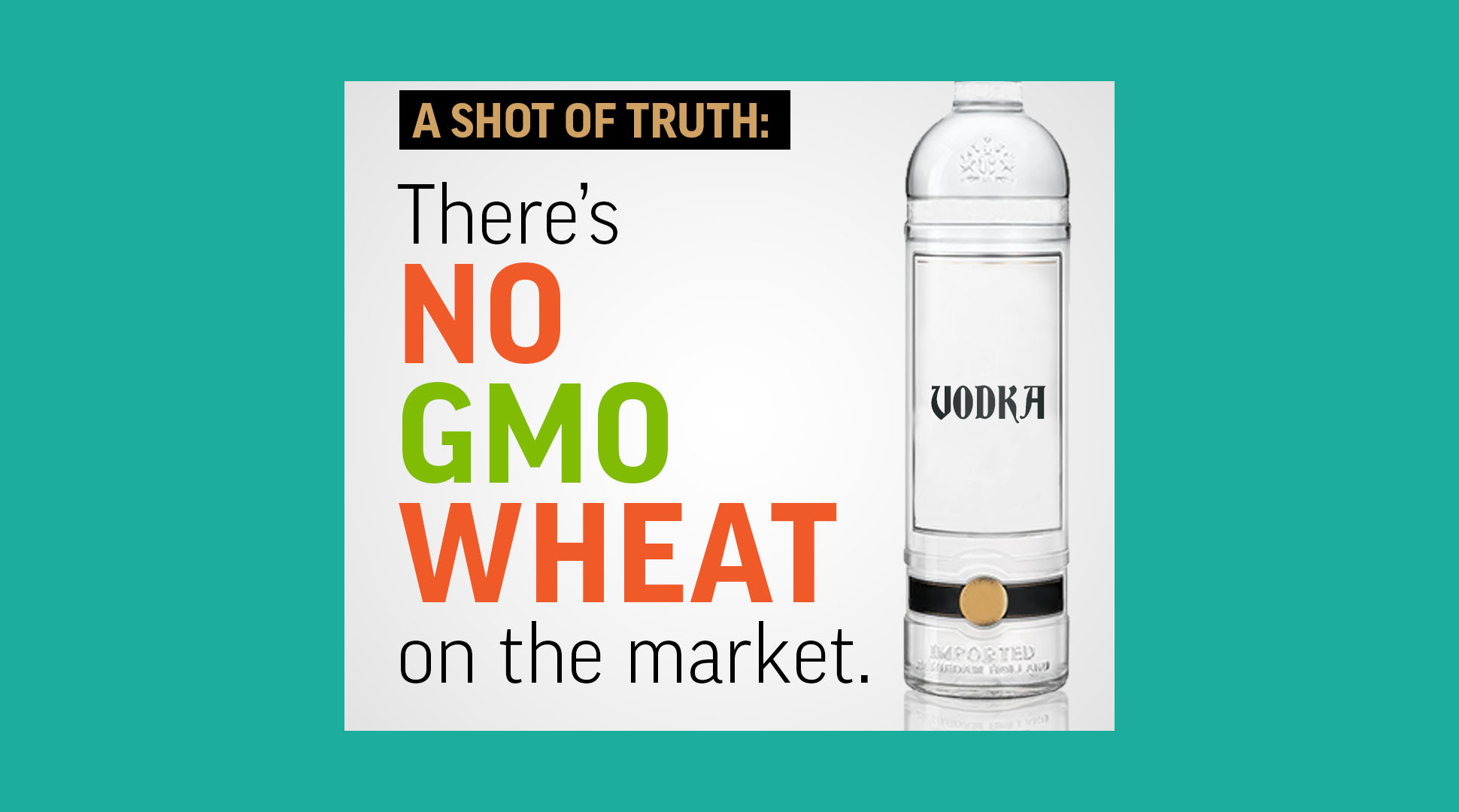What does a non-GMO label on an alcohol bottle really mean? GMO Answers explains more in this excerpt from its "Is my cocktail made from GMOs?" page.
Vodka is the #1 selling spirit in America, which seemingly makes it the perfect place for brands to put their stake in the ground about genetically engineered crops. However, there are some challenges with calling alcohol non-GMO which companies and consumers would be well advised to take notice of.
First and foremost, it’s actually against the law to put non-GMO on any bottle of alcohol in the U.S. Alcohol is not regulated the same way the U.S. Food and Drug Administration (FDA) regulates food, but similar to food, there are laws protecting consumers from misleading labeling. While these companies are free to say non-GMO in their marketing material, per the Alcohol and Tobacco Tax and Trade Bureau (TTB), it is misleading to use any “bioengineered food labeling terms or any similar references on alcohol beverage labels” and therefore prohibited.
Secondly, a non-GMO claim will only explain the breeding process of the source crop, not the final product. Genetically engineered crops have genes precisely added or silenced in their DNA to help them express certain traits like insect resistance, disease resistance, or herbicide tolerance. This modification happens at the seed level—by the time the corn that grows from the seed reaches the bottle that holds the vodka, there is no DNA left.
A little louder for the folks in the back:
There is no DNA in a bottle of vodka, GMO or otherwise.
Unfortunately, that label tells you nothing about the vodka you are about to purchase. But many people believe that, even if there is no DNA in the bottle, there is still some health benefit to be gained from choosing non-GMO products, or some environmental impact that you can feel good about being a part of. Companies that label their alcohol non-GMO are often banking on this. Marketing Dive explains:
“By making its base vodka non-GMO, Smirnoff aims to tap into the growing market of better-for-you alcoholic beverages, which consumers increasingly demand as they seek healthier lifestyles. The products are especially popular with women and younger drinkers, who are consuming more alcohol and choosing spirits over beer and wine. Millennials tend to care more about where their food comes from than older generations, with more than 60% saying they expect non-GMO food options, compared to 46% of general consumers, according to Maru/Matchbox research.”
Read the entire article on GMO Answers.
